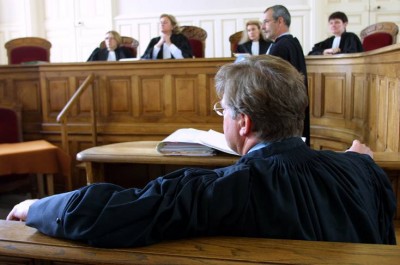The value of victim advocacy in practice

In the Netherlands, victims of crime have long held so-called ‘victims’ rights’. EU guidelines setting minimum standards for these rights, and for the support and protection of the victims of criminal offences, were also laid down in 2017. The Dutch Ministry of Justice and Security, which has invested in the funding and training of victim advocacy in cases of serious violent crime and sexual offences, wished to know the degree to which this victim advocacy contributed towards the exercise of these rights in actual practice.
An important role in the exercise of victims’ rights
The NSCR and VU University researched into five victims’ rights: (1) the right to obtain general and case-related information, (2) the right to inspect the dossier, (3) the right to add documents to the dossier, (4) the right to submit a claim for damages, and (5) the right to speak. To determine the role of the victim advocate in exercising these rights, the researchers held questionnaires amongst victim advocates and held interviews with the police, with Victim Support Netherlands (Slachtofferhulp Nederland), the Netherlands Public Prosecution Service (Openbaar Ministerie), legal practitioners, and victims’ lawyers. The research showed that victim advocacy played an important role, particularly with regard to inspecting the dossier and adding documents to the dossier. They also played a positive role in the recovery of damages, especially in cases involving complex personal injury.
The toga helps to empower victims during court sessions
Besides exercising victims’ rights, victim advocates have other beneficial functions. The toga helps to empower victims during court sessions: victims feel acknowledged because they are being accompanied by someone with legal expertise who can put up a fight against the perpetrator and their lawyer. Victim advocates also guarantee partisan support for the victim, irrespective of the positions being taken by the police or the Public Prosecution Service. Victim advocates themselves indicated that for victims’ rights to be protected as well as possible, more generous remuneration and earlier referral to victim advocacy were needed.
Criminal courts still unfamiliar with the extent of victims’ rights
The research also showed that despite the fact that courts are clearly taking increasing account of the victim of a crime, many are still unfamiliar with the legal extent of victims’ rights and unaccustomed to the presence of a victim advocate. The result is sometimes a search for the best way to explain and apply the legislation; for instance, at the moment a dossier is inspected. Disagreements can arise on issues of full or partial inspection, inspection during or only after the completion of research, and inspection by victims themselves or only by their lawyer. Several of those interviewed in the study were of the opinion that current victims’ rights would need to ‘settle into place’ before new, recently proposed victims’ rights could be introduced.
Publication details and further reading
Elbers, N.A., Meijer, S., Becx, I.M., Schijns, A.J.J.G., Akkermans, A.J. (2018). Slachtofferadvocatuur. De rol van de advocatuur in de bijstand van slachtoffers van ernstige gewelds- en zedenmisdrijven. Amsterdam, NSCR/VU.
Share this article
Actuele berichten

